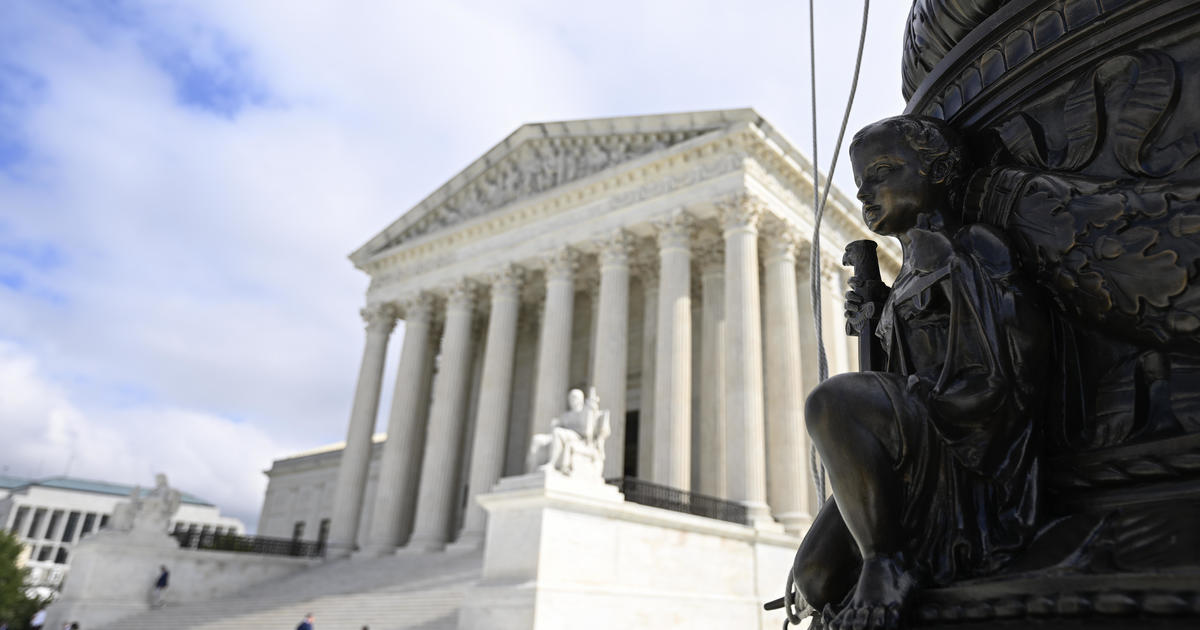Washington — The Supreme Court will begin its new term on Monday after a summer recess during which questions arose about the justices’ adherence to ethics principles. The upcoming term, which runs through June 2024, will feature cases involving the First Amendment, administrative power, and gun rights. Additionally, the court will address a highly anticipated request to decide the rules for obtaining the abortion pill mifepristone, the challenge to the federal ban on bump stocks from the Trump administration, and potentially a review of school rules regarding transgender students’ bathroom use.
Should the Supreme Court agree to take up the Justice Department’s appeal in the mifepristone dispute, it would be the first abortion case heard by the justices since the conservative majority overturned Roe v. Wade in June 2022. A decision regarding the restrictions surrounding the drug’s use would have national implications for abortion access, even in states where it is legal. “This term will give us more evidence to try to assess what kind of court this is: is it a 6-to-3 divided court or is it, as many suggest, a 3-3-3 court, with the three Democratic appointees, three extreme conservatives, and three moderates who determine results,” said David Cole, national legal director of the American Civil Liberties Union.
The First Amendment
The upcoming term is the first in recent years that does not include a case involving religious liberty, but it does involve several cases related to free speech rights. Two of these cases examine how elected officials interact with the public on social media and whether their actions constitute state action subject to the First Amendment when they block users from personal social media accounts used for job-related information sharing.
Nicholas Quinn Rosenkranz, a law professor at Georgetown University, discussed these disputes at an event hosted by the conservative legal organization Federalist Society. He highlighted the difficulty in distinguishing between a government official’s public and private capacities in the digital space. This issue was central to a lawsuit against former President Donald Trump in 2017, when a federal appeals court ruled that he violated the First Amendment by blocking online critics. The Supreme Court was set to review this decision in 2020 but ordered the case to be thrown out after Trump left office. The court will now address this matter in cases involving two California school board members and a Michigan city manager.
Although Trump is no longer in office, he is involved in a trademark dispute that the Supreme Court will hear on November 1. Lawyer Steve Elster applied to trademark the phrase “Trump Too Small,” which references a memorable exchange between Trump and Sen. Marco Rubio in 2016. The U.S. Patent and Trademark Office refused to grant the trademark, citing provisions of federal trademark law related to living persons’ names and marks that falsely suggest a connection with a living or dead person. Elster argued that these provisions are unconstitutional, citing recent Supreme Court cases that invalidated similar provisions of the Lanham Act.
The Second Amendment
One of the most closely watched disputes this term follows a June 2022 decision in which the court’s conservative majority expanded the scope of the Second Amendment. The court established a new standard for lower courts to apply when determining the constitutionality of firearms restrictions. The case before the court this term involves a law that prohibits people subject to domestic violence restraining orders from possessing guns. The plaintiff, Zackey Rahimi, claimed the law violated the Second Amendment, and a federal appeals court eventually found it unconstitutional. The Justice Department has appealed to the Supreme Court, which will clarify and apply the “text, history, and tradition” test established in the previous case.
The upcoming term presents numerous opportunities for the Supreme Court to address important legal issues and shape the direction of the law. As the court convenes on Monday, the nation awaits its decisions with great anticipation.
Denial of responsibility! Vigour Times is an automatic aggregator of Global media. In each content, the hyperlink to the primary source is specified. All trademarks belong to their rightful owners, and all materials to their authors. For any complaint, please reach us at – [email protected]. We will take necessary action within 24 hours.


